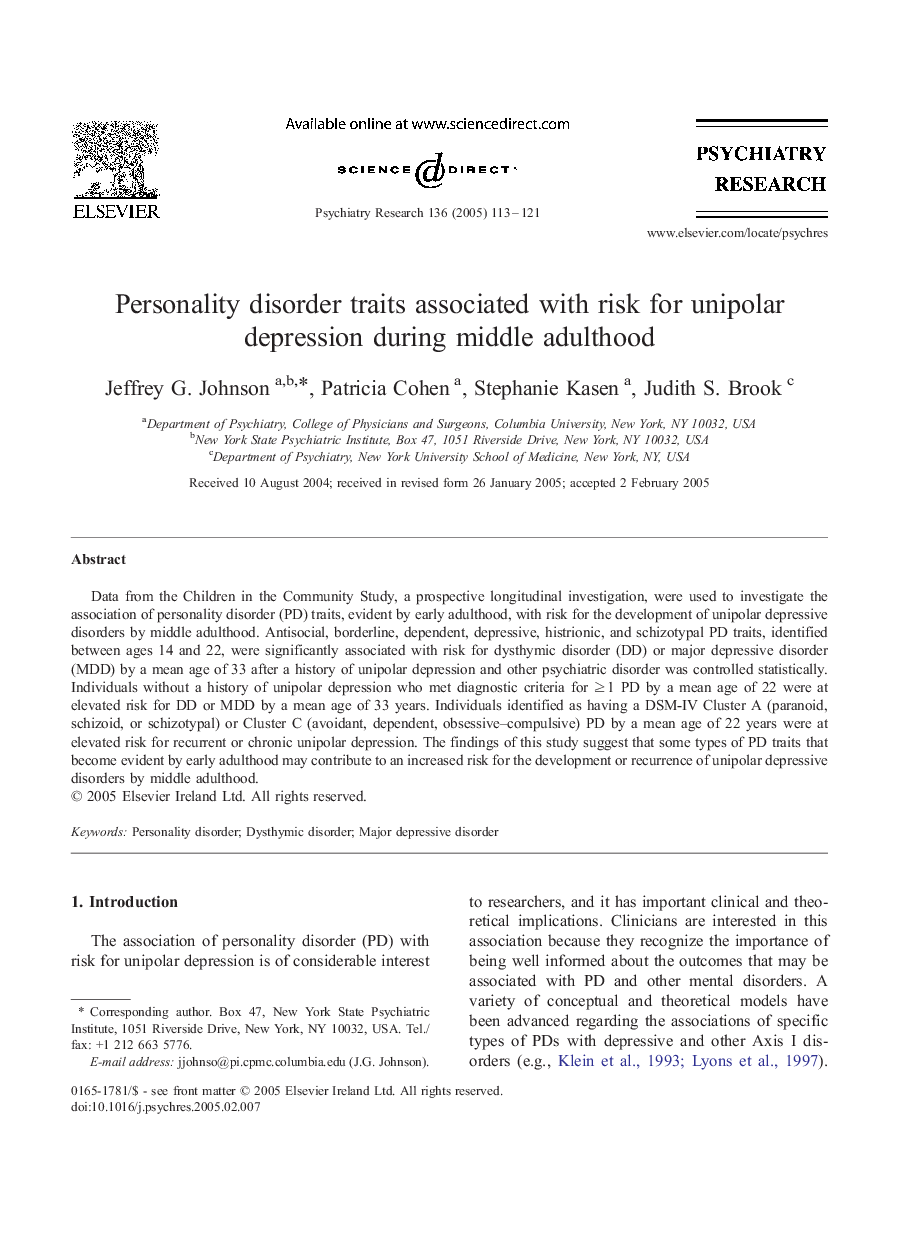| Article ID | Journal | Published Year | Pages | File Type |
|---|---|---|---|---|
| 9645971 | Psychiatry Research | 2005 | 9 Pages |
Abstract
Data from the Children in the Community Study, a prospective longitudinal investigation, were used to investigate the association of personality disorder (PD) traits, evident by early adulthood, with risk for the development of unipolar depressive disorders by middle adulthood. Antisocial, borderline, dependent, depressive, histrionic, and schizotypal PD traits, identified between ages 14 and 22, were significantly associated with risk for dysthymic disorder (DD) or major depressive disorder (MDD) by a mean age of 33 after a history of unipolar depression and other psychiatric disorder was controlled statistically. Individuals without a history of unipolar depression who met diagnostic criteria for â¥Â 1 PD by a mean age of 22 were at elevated risk for DD or MDD by a mean age of 33 years. Individuals identified as having a DSM-IV Cluster A (paranoid, schizoid, or schizotypal) or Cluster C (avoidant, dependent, obsessive-compulsive) PD by a mean age of 22 years were at elevated risk for recurrent or chronic unipolar depression. The findings of this study suggest that some types of PD traits that become evident by early adulthood may contribute to an increased risk for the development or recurrence of unipolar depressive disorders by middle adulthood.
Related Topics
Life Sciences
Neuroscience
Biological Psychiatry
Authors
Jeffrey G. Johnson, Patricia Cohen, Stephanie Kasen, Judith S. Brook,
